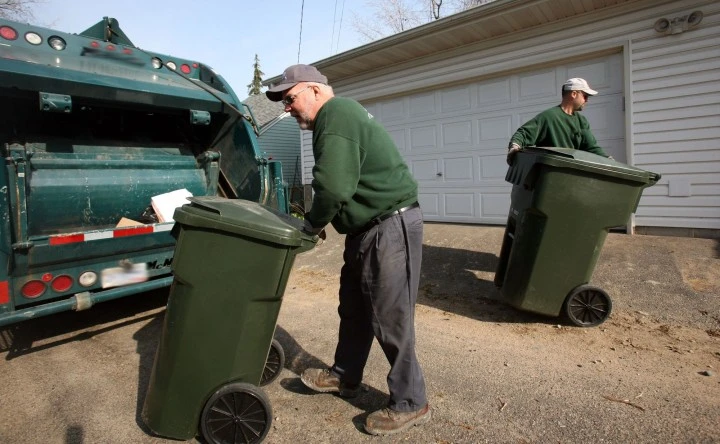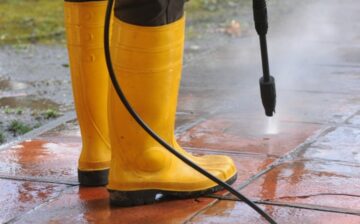
The city of Boston, with a population of approximately 685,000 individuals and a high quality of life, is one of the most desirable places to live in Massachusetts. The majority of Boston residents live in rental apartments. It is quite obvious that people living in these apartments generate tons of waste during their daily activities. Proper waste management is important for:
- Reducing pollution.
- Protecting the environment.
- Maintaining health safety standards.
In this article, we will provide you with some knowledge on the management of residential waste in Boston and how you can manage the waste generated on a daily basis.
Waste Management Policies in Boston
Boston’s waste management policies primarily focus on recycling. The first Solid Waste Master Plan for Massachusetts was developed in 1990. Now, the Department of Environmental Protection (MassDEP) primarily monitors the disposal and management of waste in Boston. Let’s have a look at the policies for managing waste in Boston. Let’s have a look at the policies for managing waste in Boston.
Solid Waste Master Plan
MassDEP launched an updated 2030 solid waste master plan in October 2021. This plan focuses on reducing waste disposal within the state by:
- 30% over the next decade (till 2030),
- 75% over the next decades (till 2040), and
- 90% over the next three decades (till 2050).
The plan includes:
- Lowering the statewide food disposal rate by 35%.
- Baning the disposal of mattresses and tiles.
- Ensuring segregation of municipal waste materials at combustion facilities.
Zero Waste Boston Scheme
The Zero Waste Advisory Committee launched its Zero Waste Boston plan in 2018. This plan encourages the residents of Boston to recycle as much of the trash as possible. Major recommendations of this plan are listed below:
- The solid waste generation in Boston will be reduced by approximately 85%.
- The state will try to recycle and reuse most of the trash rather than subjecting it to incineration or throwing it into the dumps.
- Promote recycling.
- Organic trash will be subjected to composting.
Simple Rules
Residents also have to play their role in making Boston a zero-waste city. You can do this by following some simple rules for disposing of your recyclables.
- Follow the trash collection schedule: Use a mobile app to follow your collection schedule. Bring your recyclable waste containers to the collection site only between 5-6 pm to avoid spillage.
- Use recycling bins: Recycling containers provided by the government for waste collection have the following properties:
-
-
- Color: Blue.
- Capacity: 32 gallons or 64 gallons.
-
- Say no to plastic bags: Avoid using plastic bags for waste collection. However, you can use high-quality transparent plastic bags if you do not have sufficient space in the bin.
- Follow the rules: Always follow the waste disposal rules implemented by the government. The Code Enforcement Division issues a ticket to the citizens who fail to follow these rules.
- Put recyclable items in the blue container. Dispose of the following items in the blue recycling container:
-
-
- Cardboard.
- Paper.
- Plastic bottles.
- Plastic containers.
- Metal cans.
- Glass jars.
- Glass bottles.
-
- Learn what cannot be recycled. The underlying items cannot be recycled:
-
- Plastic bags.
- Fabric or clothes.
- Cloth hangers.
- Ropes.
- Hoses.
- Scrap metal.
- Batteries.
- Food materials.
- Styrofoam.
- Black plastic containers.
Reason: These materials can damage the sorting equipment. In addition, batteries are hazardous. They contain flammable and toxic materials.
- Do not put small items in the blue bin. Do not dispose of items smaller than 2*2 inches into the blue bins, as they can fall from the sorters.
- Non-hazardous batteries are a part of regular household waste. Throw non-hazardous batteries in normal household waste. Non-hazardous batteries include:
-
-
- Button batteries.
- Single-use AA and AAA batteries.
- Single-use C and D battery.
-
- Discard hazardous batteries carefully: Cover the terminals of hazardous batteries with tape and take them to Boston’s Household Hazardous Waste Day for appropriate disposal. Hazardous batteries include:
-
- Rechargeable alkaline batteries.
- Rechargeable Li-ion batteries.
- Lithium batteries.
- Lead acid batteries.
Tips for Waste Management
Being a responsible citizen, you can play your role in sustainable waste management by following the underlying tips:
-
Be aware of waste management rules:
Stay updated on the waste disposal and management guidelines provided by the government. Follow the Zero-Waste Advisory Committee’s directions for disposing of recyclable trash.
-
Recycle, recycle, recycle:
Zero-Waste Boston emphasizes recycling. Understand what materials can be recycled and efficiently put them in the blue containers as directed by the state.
-
Lessen the use of disposable items:
It is important to limit the use of disposable single-use items and promote recycling. It will:
- Be environmentally friendly.
- Reduce the overall amount of garbage produced.
-
Handle hazardous waste carefully:
Do not throw away hazardous waste with normal domestic trash. Make sure to follow proper disposal guidelines while discarding hazardous trash. Remember, you cannot put such waste materials into recycling bins.
-
Donate things instead of throwing them away:
Some items that we end up throwing. Those can be reused, but we don’t want to use them anymore. Instead of discarding items like old clothes, crockers, and books, etc., you can give them to the unprivileged.
-
Say no to plastic bags:
Try to avoid the use of plastic bags as much as possible. While shopping, we recommend you use reusable bags and containers. Plastic bags cannot be degraded easily and are, therefore, quite harmful to the environment. In addition, animals might ingest the wasted plastic bags and end up dying.
-
Follow waste collection schedules:
Keep yourself updated on the waste collection schedule. Make sure to carry your trash bins to the collection points on time. Timely disposal of waste will keep your house clutter-free and the environment healthy.
Conclusion
In Boston, a lot of people live in rental apartments. The residents of Boston generate a lot of waste in routine. Appropriate waste management and disposal ensures the safety of the ecosystem. That is why the government of Boston has taken initiatives like Zero-Waste Boston to keep the city free from garbage. The process of recycling is very important in this regard. It reduces environmental pollution. Being the residents of Boston, it is important to abide by the rules and strategies implemented by the state and promote recycling.
We hope you found this blog post on Residential Waste Management in Boston, useful. Be sure to check out our post on Streamlining Waste Management with Dumpster Rental for more great tips!
Have Experience in the Moving Industry? Want an Additional Income Stream? Work With All Around Moving!
If you are interested in applying your skills as a relocation consultant in the moving industry, check out our program to earn extra income. Partner with us, All Around Moving and we’ll help you make extra money. Click here to learn more.





